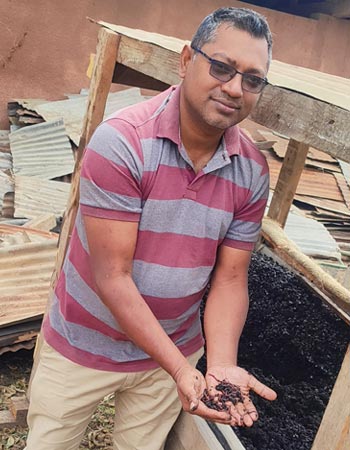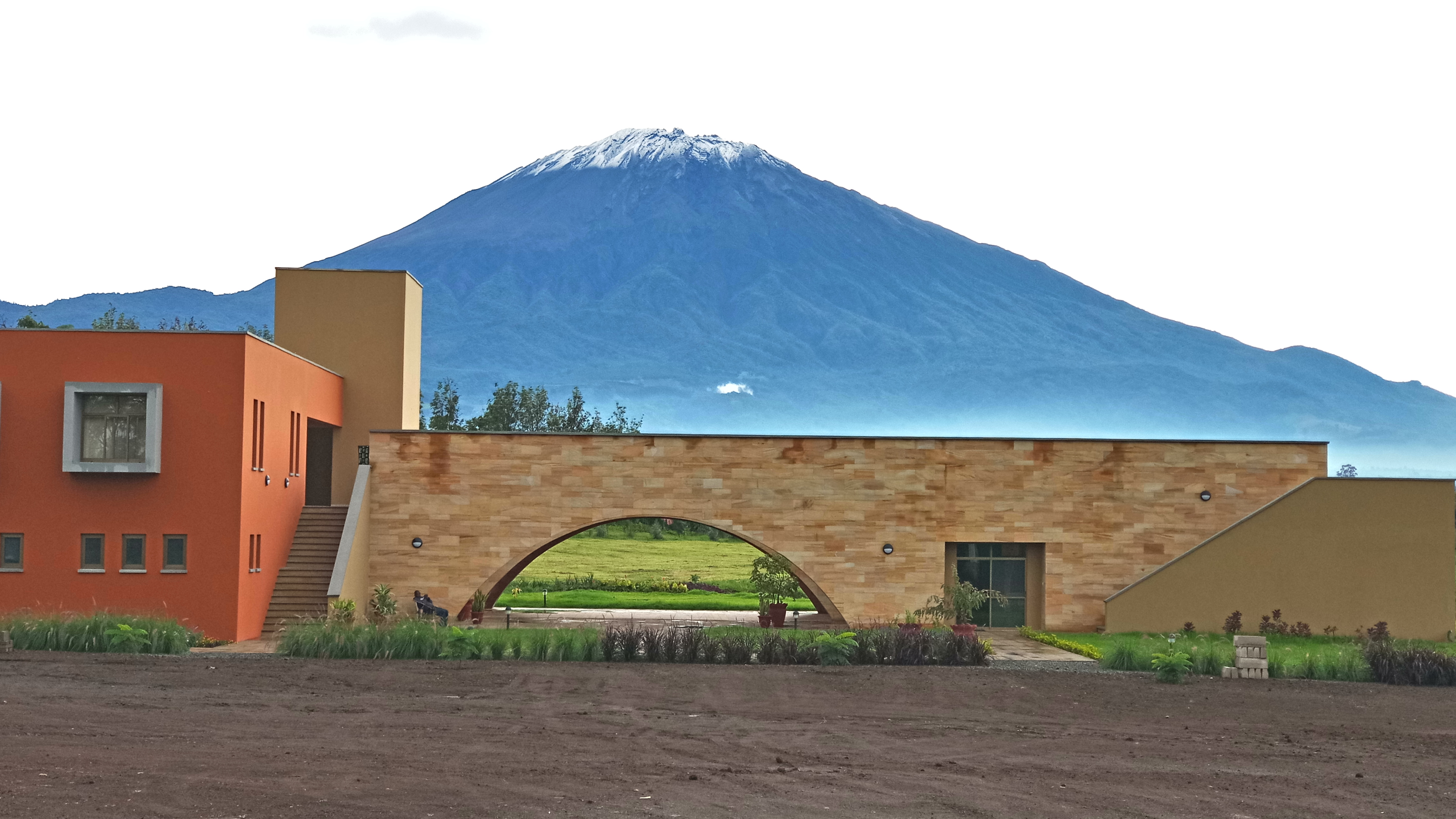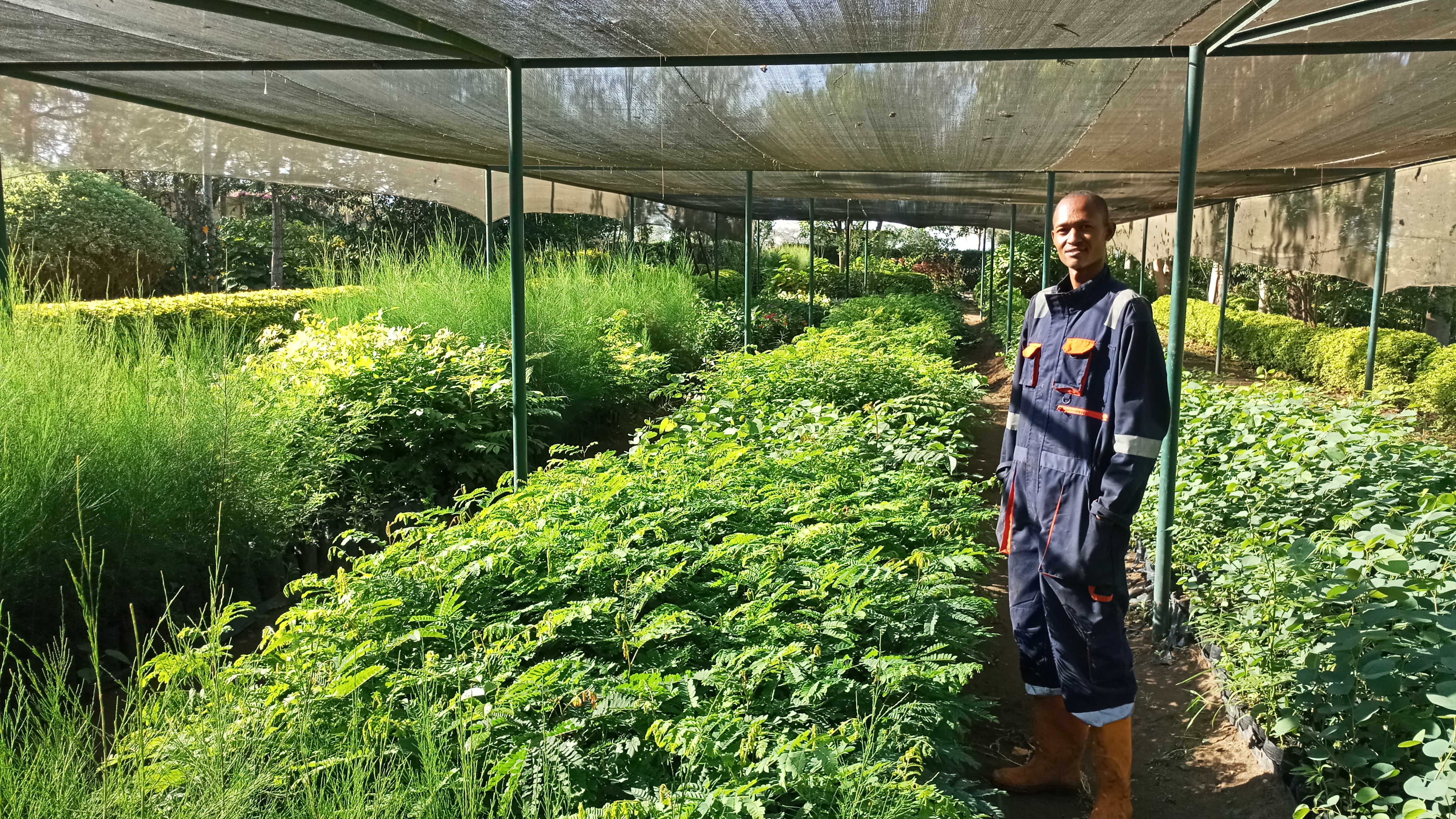Sustainability work on AKU’s Arusha site - Glen Tellis
 Glen Tellis is a Farm Manager at the AKU site in Arusha, Tanzania. Ever since he joined AKU in 2017, he has been involved in enhancing plantation efforts and is innovating on a number of fronts.
Glen Tellis is a Farm Manager at the AKU site in Arusha, Tanzania. Ever since he joined AKU in 2017, he has been involved in enhancing plantation efforts and is innovating on a number of fronts.
The Office of Environment and Sustainability brings you his story, hopes and ideas for a greener and more sustainable world.
What is your personal background? How did you get involved in farming work?
I grew up on the farm where my dad worked for over 18 years. Living on the farm, I was used to doing farming work and taking care of the animals. I have a bachelor's degree in computer science but have worked in farming for over 15 years and used to deliver organic vegetables before I joined AKU.
Back in the day, rainfall and climate change were not things we worried about. We always knew that rains would come on time and the yields were great. But with climate change, getting accustomed to this new climate has taken a lot of learning in terms of experiments, failed crops and a lot of hardships to understand how to deal with low water, less rainfall, more disease prone plants. A lot of greenery is also disappearing due to over grazing and population increase.
Please tell us about the AKU site in Arusha.
Arusha has grown into a city and sees a lot of with mining, agricultural activities and tourism. It also hosts some United Nations offices.
Arusha’s weather is really nice and used to be predictable. But since the last four years or so, the rainfall patterns have changed. At times there is too much rainfall and then it just stops for entire periods of time during which plants dry out in the fields.
The AKU site is over 3200 acres of land, out of which about 1200 acres of land is arable. The rest is hills and gullies that have been affected by erosion due to overgrazing. Because the area is so big, it was difficult to control encroachment of grazing cows in the past but now we’ve built better relationships with the surrounding communities. There is also a community center which serves as a space for community engagement and learning, especially on topics of protecting the environment and improving farming practices. There is a nursery on site that produces 30,000 to 35,000 trees in a year, some of which are taken to be planted on the hills.

What are some of the innovations happening on the ground?
Sustainability really came into the focus here in 2018. Since then, we have tried many things - sometimes we have failed but we have continued to keep experimenting. Some of the innovations we are currently working on include:
-
We display different technologies on small demonstration plots where we grow avocados, potatoes, and bananas. Every year, we have a Farmers Field Day where community members can come to see the demo plots and nursery and participate in various workshops.
-
We are exploring vermicompost (using worms) on a large scale, normal compost from chicken and cow manure to reduce our reliance on chemical fertilizers. We also apply soil improvement methods such as cover crops and mulching which have improved water retention and reduced runoff.
-
I’ve built a small potato planter, some weeding tools, fertilizer planter for our coffee plantation. All these are built from materials available from our local hardware store.
-
I've developed a method to plant trees on the hills in harsh conditions by putting two furrows at an angle to drive the rainwater into the planting holes. This increases the survival rates of trees.
-
We are trying to recycle the plastic that is wrapped around the sapling. We now use banana leaves and hollowed banana stems to make planters as these decompose after planting and avoids any plastic going into the environment.

What is an achievement or initiative that you're proud of?
I'm proud of the number of trees that we've grown and their survival rates. Now, we have this forest around the site which is a haven for the mammals and birds. We have seen an increase in numbers of mammals and now have over 360 different species of mammals that regularly visit the site, including migratory birds, predators like hyenas and other animals. Our afforestation efforts have decreased the runoff of water from the hills and more water is being retained by the soil.
What are your personal goals and hopes for the future of sustainability at AKU?
My personal goal is to achieve zero waste and inspire others, especially the younger generation, to become part of sustainability efforts. I’m hopeful that this work is going to succeed because sustainability and financial stability go hand in hand. And there is serious commitment on sustainability by the leadership, including Prince Rahim, who gives me hope and inspiration.

Glen Tellis
|
|
|
|

